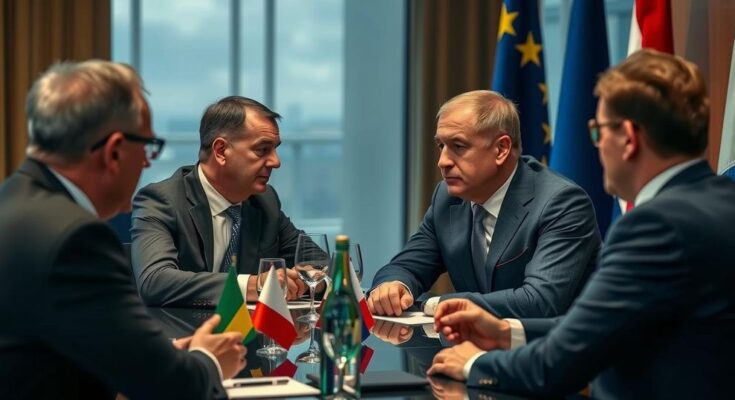Czech Prime Minister Petr Fiala urged the EU to reconsider its climate goals given potential losses of global allies, particularly with former US President Trump’s withdrawal from the Paris Agreement. He emphasized the need for realistic targets, collaboration with major economies like China, and an assessment of past climate commitments. Fiala also advocated nuclear energy as part of the EU’s decarbonization strategy.
On Wednesday, Czech Prime Minister Petr Fiala called for a reassessment of the European Union’s climate objectives in light of the possible absence of global partners. He emphasized that the EU’s efforts alone are insufficient, particularly as former US President Donald Trump may withdraw from the Paris climate agreement. Fiala asserted that Europe must seek allies, including the United States and China, to support its climate initiatives. He acknowledged the importance of US states, some of which may remain committed to climate goals despite federal shifts. Furthermore, Fiala urged the EU to critically evaluate its existing climate targets before establishing new ones, advocating for realistic commitments rather than ambitious yet unattainable promises. In his address at COP29, he underscored the necessity for a reliable consensus and highlighted the role of nuclear energy in achieving decarbonization, particularly for countries inexperienced in this field.
The discourse surrounding climate change has escalated globally, especially with significant political transitions affecting international agreements. The potential withdrawal of the United States from the Paris Agreement under the Trump administration raises concerns about collective climate action. The Czech Republic, as a part of the EU, plays a critical role in these discussions. The comments from Prime Minister Fiala reflect a growing realization that Europe’s climate efforts cannot succeed in isolation and must include collaboration with major economies worldwide.
In conclusion, Prime Minister Petr Fiala’s remarks highlight the need for the European Union to reassess its climate strategy in light of potential shifts in global alliances. He advocates for a realistic evaluation of existing targets and emphasizes the importance of collaboration with other nations to bolster climate commitments. Fiala’s approach suggests a focus on pragmatic and achievable goals rather than merely ambitious rhetoric, supporting the use of nuclear energy as part of the decarbonization effort.
Original Source: www.euractiv.com




